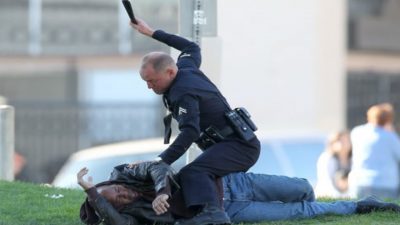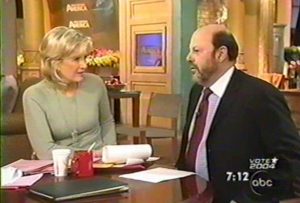 Perhaps the most important issue involving the use of tasers by peace officers (i.e.
Perhaps the most important issue involving the use of tasers by peace officers (i.e.  police officers, deputy sheriffs) is when, if ever, one can obtain redress for being unlawfully tased. The law on tasers is, frankly, bizarre, unpredictable, and more of the product political compromise, than any genuine difference of judicial opinion or philosophy in dealing with appellate level taser cases.
police officers, deputy sheriffs) is when, if ever, one can obtain redress for being unlawfully tased. The law on tasers is, frankly, bizarre, unpredictable, and more of the product political compromise, than any genuine difference of judicial opinion or philosophy in dealing with appellate level taser cases.
In light of a series of seemingly contradictory, confusing and unfortunately apparently politically driven “Opinions” by state state and federal intermediate level appellate courts, especially several Opinions of the Ninth Circuit Court of Appealsstarting on December 29, 2009, it’s very easy for the police to “squirm” out of liability“; administrative or monetary (i.e. lawsuits) for tasing innocents, and others not deserving of such treatment (14th amendment substantive due process claims under federal law (42 U.S.C. § 1983 aka “The Third Enforcement Act” or “The Ku Klux Klan Act of 1871“.)
For example, on December 29, 2009, the United States Court of Appeals for the Ninth Circuit (the largest appellate circuit in the United States) held that Coronado Police Department officers were not entitled to “qualified immunity from suit” because no reasonably well trained peace officer (i.e police officer, deputy sheriff) could have believed that it was reasonable, and, therefore, Constitutional, to tase the plaintiff, who was standing twenty feet away from them, in his briefs and tennis shoes only, and made no aggressive movements or threatening statements to the officers:
“No reasonable officer confronting a situation where the need for force is at its lowest—where the target is a nonviolent, stationary misdemeanant twenty feet away—would have concluded that deploying intermediate force without warning was justified. We thus hold that Officer McPherson’s use of significant force in these circumstances does not constitute a reasonable mistake of either fact or law. Deorle, 273 F.3df 1286. Officer McPherson is therefore not entitled to qualified immunity for his use of the Taser X26 against Bryan.” Bryan v. McPherson, 630 F.3d 805 (9th Cir. 2009).
Jerry L. Steering is a police misconduct lawyer who sues police officers for abusing their authority, such as for false arrests, the use of unreasonable / excessive force and for their procuring malicious criminal prosecutions of their victims; all of which are standard operating procedures for many police agencies in this day and age. Mr. Steering also defends criminal “Contempt Of Cop” cases; actions brought against innocents by criminal prosecutors, for essentially, “bruised ego” violations.
These Contempt of Cop criminal cases are criminal prosecutions that are procured either by 1) police officers flat-out lying in their police reports about alleged conduct by you that never happened (i.e. the suspect battered me by attacking my fist with his jaw), and/or 2) by police officers authoring reports about Constitutionally protected conduct by you, that nonetheless, involve result in the filing of bogus criminal charges against you, for conduct that even under the police (bogus) version of the facts, do not show the commission of any crime; usually only verbal challenges to police commands, and sometimes even for video recording the police.
This all seemed clear enough. The cops now couldn’t use a taser against you for verbally going off on them, or otherwise verbally protested their presence and actions. However, the Ninth Circuit just couldn’t leave well enough alone. In making the law on the propriety of police use of tasers on civilians, the Ninth Circuit held that the involved officers were entitled to qualified immunity from suit for tasing and arresting an innocent females, because a reasonably well trained peace officer could have believed that tasing the suspected victim of domestic violence was permissible because the wife / victim somehow impeded / delayed their “investigation”:
“At this point, Jayzel was cornered between the officers and her husband—Officer Agarano was in front of her, Officer Aikala was at her right, and her back was against her husband’s chest. Aikala moved to apprehend Troy and bumped against Jayzel. Feeling uncomfortable and exposed with Aikala squarely in front of her, Jayzel raised her hands, palms forward at her chest, to “keep [Aikala] from flushing his body against [hers].” Jayzel agrees that both of her hands touched Aikala’s chest, but asserts that she did not put her hands up until Aikala was pressed up against her. Aikala immediately stepped back and asked Jayzel if she was touching an officer. Jayzel testified that she was scared and again implored everyone to calm down and not wake her children. At that moment, Jayzel felt a pinch on the back of her right hand and then felt “an incredible burning and painful feeling locking all of [her] joints,” she heard herself scream, and felt herself fall to the floor. Aikala had tased Jayzel and cycled it for five seconds. Jayzel and Troy were taken into custody; both were charged with harassment, while Troy was charged with resist-
876 MATTOS v. AGARANO ing arrest and Jayzel with obstructing government operations. A state court judge dismissed the charges against Jayzel, and it appears that the State later dropped all criminal charges against Troy.
Troy and Jayzel brought suit against the officers and others under 42 U.S.C. § 1983 for violations of their Fourth, Fifth, and Fourteenth Amendment rights based on the officers’ warrantless entry into their residence, Jayzel and Troy’s arrests, and the officers’ use of the Taser on Jayzel. The district court granted summary judgment in favor of the defendants on all claims except an excessive force claim under the Fourth Amendment based on the officers’ use of the Taser on Jayzel. With respect to excessive force, the court ruled that there were questions of fact material to deciding whether the use of the Taser was constitutionally reasonable. The officers brought this appeal.” Mattos v. Agarano, 590 F.3d 1082 (2010).
Ultimately, the Ninth Circuit held:
Although we find the question to be a close one, on this record, we cannot conclude that the officers used excessive force in violation of the Fourth Amendment.
In this second category of cases, young ambitious prosecutors often take it upon themselves to file a criminal case against you for a “Contempt Of Cop” violation (i.e. Constitutionally protected verbal protest of police actions [Houston v. Hill, 482 U.S. 451 (1987)] / failure to comply fast enough with police orders; also Constitutionally protected conduct [People v. Quiroga, 16 Cal.App.4th 961 (1993) (“A person need not respond with alacrity to police commands”)]), to protect the officer from civil liability.
The criminal case serves to protect the police for their tasing, pepper-spraying, beating or falsely arresting of you, because either: 1) you can’t make bail and you’re forced to plea to a crime that precludes you from suing; or 2) you can’t afford to pay the attorney’s fees necessary to really defend yourself, so you’re forced to plea to a crime that precludes you from suing; or 3) you are simply framed by the police, who, with great ease, lie in concert on the witness stand at your criminal trial, and you’re convicted of a crime that precludes you from suing. Unfortunately, many of these bogus criminal prosecutions involve police use/abuse of tasers upon you, and you being charged with resisting your being tortured with the taser; typically misdemeanor charges of violation Cal. Penal Code § 148(a)(1)(resisting / obstructing / delaying a peace officer); a crime that really can be twisted or tortured to mean just about anything. If the cops beat you up moderately, you may get falsely charged with assault on a peace officer (Cal. Penal Code § 240/241(c)) or battery on a peace officer (Cal. Penal Code § 242/243(b).) If they beat you up pretty bad, they’ll often falsely charge you with violation of Cal. Penal Code § 69; using or threatening to use force or violence to prevent or dissuade a public officer from performing their duties. Some police agencies are so creepy that they’ll charged a Section 69 felony right out of the box. Section 69 is a “wobbler”; a crime in California that the District Attorney’s Office can charge as either a misdemeanor or a felony.
Police Abuse Of Tasers And Contempt Of Cop Cases.
When taser devices began to be used by regular line peace officers (i.e. police officers / deputy sheriffs) in great numbers, the cops literally went crazy with them; often lighting-up civilians for recreational purposes (really; like it’s fun.) The cops are trained that a taser can’t kill you, but only temporarily interfere with your ability to control your muscles. So, many just have a little fun lighting-up anyone that looks at them funny, or protests their creepy attitude and actions. The standard modern taser is the X-26 model, manufactured by Taser International.
Although the X-26 taser has an optional video camera attachment that slides into the handle of the device, this author knows of no agency that does or would use such a camera, as it would show what actually happened when the police officer used his taser on a civilian; something just not done when the agency is desirous of avoiding civil liability for taser abuses. This is especially so, as the memory chips in taser devices cannot be erased or altered, and, therefore, the cops can’t pick and chose which items they “don’t want to exist”; they can’t delete the bad tasings, which is enough to prevent use of the taser cam by most, if not all, American police agencies (if you don’t think that the cops conceal or destroy evidence that makes them look bad / liable, this author has some nice swamp land in Florida for sale for you.)
Criminal Prosecutions of Police Officers for torturing arrestees with tasers.
There have been very few criminal prosecutions, and even fewer convictions of police officers, for using the taser as an instrument of torture. The cops are trained that the taser can’t kill a person, so the mentally disordered cops light up “undesirables” like Christmas trees. One recent such case was that of United States v. Anthony Sclafani, United States District Court, Central District of California Case Number CR 10-00163; a case alleging that Desert Hot Springs, California, Police Department Sergeant Anthony Sclafani tortured a female DUI arrestee, and an arrestee gang member, on successive nights in February of 2005. Sgt. Sclafani was Indicted for violation of 18 U.S.C. § 242; violation of federal Constitutional rights under color of law; in this case, violation of Sclafani’s victim’s rights to be free from the use of unreasonable force upon their persons under the Fourth Amendment to the United States Constitution (Click here to see Sclafani Indictment.) Sgt. Sclafani tortured the female DUI arrestee so badly, that a fellow DHSPD officer actually took the female taser victim to a local hotel to get her away from Sgt. Sclafani, because he thought that Sclafani and two of his subordinate officers might have ended-up killing her (repeatedly tasing her, stomping her and pepper-spraying her; these creepy cops actually took turns tasing the lady; laughing while doing so.) Sclafani was convinced that no one would convict him in those cases, and turned-down misdemeanor no jail offers by the government. He was wrong, and is now serving a 4 year federal prison sentence. His fellow officers at the DHSPD backed him all the way. They could care less what he did to his victims, since such conduct was routine for the “meat eater” faction of the DHSPD (as opposed to the “lettuce eaters”; those DHSPD officer who wouldn’t engage in such revolting and cruel treatment of DHSPD prisoners.)
Such revolting behavior was rather common in the early and mid-2000′s at the DHSPD; most likely the statistically most brutal police department in the United States. In the early 2000′s the DHSPD was essentially run by Lt. David Henderson, who was also Indicted by the feds for similar conduct (Click here to see federal Indictment against Lt. Henderson; See also, the FBI 302 Witness interviews of DHSPD Sgt. Ron Hull and Sgt. Eddie Cole and of former DHSPD Officer Andrea Heath, showing the widespread depravity of the DHSPD.) Lt. Henderson was the leader of the “meat eaters” at DHSPD, and actually required new officers “to engage” (to beat-up innocents) to pass the DHSPD probationary period for new officers. Henderson was smart enough to take a misdemeanor no jail deal from the United States Attorney’s Office, that still allow his to carry a gun; something that a felony conviction would have precluded.
However, these convictions of police officers for such Constitutional violations (at least for unreasonable force under the Fourth Amendment to the United States Constitution, like torturing arrestees), that were perpetrated for a duty related activity (i.e. in the course of using force to falsely arrest someone, or used unreasonable force / conscience shocking brutality to effect the arrest; a fact establishing municipal liability, via respondeat superior liability); something that places the employing police entity, in financial “harm’s way”. This is so, since the issue about whether there was a violation of your Federal Constitutional rights at all, the threshold issue in both the criminal and the civil proceedings, is that very issues. Did the cops violate your federal Constitutional right?
If the cop gets convicted of violation of your federal Constitutional rights, that issue is res judicata (a thing decided) and collateral estoppel as to any subsequent civil action. The criminal action is considered a prior adjudication against the officer, in favor of the alleged victim in the criminal case. Thus, if there was an adjudication of a Constitutional violation by the officer in the criminal action against the police officer, such as a verdict of a jury or judge, then it’s a done deal as to whether you, the person whose Constitutional rights were violated, win the civil rights action against the police officer. You do. The only issue left to be decided by the jury or Judge in the subsequent civil action is how much money to give you.
Cal. Gov’t Code § 825 mandates that if a public employee in the State of California commits a tortious act, that the employing entity has to pay the tab (indemnify the now judgment debtor police officer) for all compensatory damages owed to the plaintiff, and, also may, after the verdict or judgment has issued, decide to pay any punitive damages awarded against any individual officers. At worst, the cop only has to pay for any punitive damages awarded against him, and that’s only if the employing municipal entity won’t indemnify the officers for any punitive damages awarded against the individual officers. Since the defendant public almost always takes the position in any civil ligation against them for the actions of their officers, that the cops didn’t do anything wrong and didn’t violate the victim / plaintiff’s Constitutional rights, it’s difficult to imagine the same entity not indemnifying the officers for even punitive damages. There would be a mutiny at the old department. They’re going to pay the punitive awarded against the cops, unless the incident video recorded with great complimenting audio; a recording so bad that the politicians won’t back the officer; something extremely rate.
Civil Liability For Violations Of Constitutional Rights By Police Abuse Of Tasers.
The law in the area of the use of tasers by peace officers is an area of jurisprudence that is both contemporaneously “clearly established”, and “not clearly established”; depending on who is your trial Judge, and who sits on the three judge panel of the federal Courts of Appeals for your geographic area (you get a three judge panel in your direct appeal to a United States Court of Appeals from an adverse judgment in the District Court.) These cases are truly political creatures; especially in the United States Court of Appeals for the Ninth Circuit. If two of the three judges of the “Right Honorable” Ladies and Gentlemen Judges of the Ninth Circuit Court of Appeals want the other side’s cause to ultimately prevail, you lose. Sorry. That’s It. If they really want to stick it to you, the “Right Honorable“ Ladies and Gentlemen Judges of the Courts of Appeals rule against you in an unpublished opinion, so the way in which the Court of Appeals stuck it to you can’t be cited as precedent by anyone else. As far as appealing your lost appeal to the United States Supreme Court, you have usually a one in one hundred chance (at best; unless it’s a big deal political big deal news issue; Obama care, gay marriages statutes or whatever is the big deal political issue of the day.) That’s the way it is. That is our reality.
One of the best examples of the judge made confusion as to whether the use of a taser violated the Fourth Amendment’s proscription against unreasonable seizures of persons, are the Ninth Circuit’s trilogy of cases on that issue. In the first case, Bryan v. McPherson (9th Circuit 12/28/09), the Ninth Circuit Court of Appeals held that using a taser on a man in his underwear who was 20 feet away and merely verbally going-off on the police officers, was so obviously unlawful, that no reasonably well trained police officer could have believed that it was constitutional to tase the man. Two weeks later, in Mattos v. Argarano (9th Cir. 1/12/10), another three judge panel of the Ninth Circuit Court of Appeals held that the police tasing of a domestic violence victim did not constitute unreasonable force, since the police were trying to grab the her husband, and she happened to just be between the man and the police. The Mattos court held that their decision didn’t conflict with the Bryan v. McPherson (9th Circuit 12/28/09), because the use of the taser in that case was so obviously unreasonable, that the defendant police officers would not be entitled to qualified immunity from suit.Thereafter, two and one-half months later in Brooks v. City of Seattle (9th Cir.March 26, 2010), the Ninth Circuit held that it didn’t constitute the use of unreasonable force for a police officer to tase a pregnant woman three times in her neck to get her out of her car. Having now painted themselves into a corner, the Ninth Circuit decided to grant “en banc review” of all three 2010 taser cases; one en banc panel of judges decided the rehearings of the Mattos v. Argarano and Brooks v. City of Seattle cases, and one en banc panel reheard the Bryan case. The results were almost as confounding, as were the original wrongly decided decisions. In the Mattos and Brooks cases, the Ninth Circuit held that although the defendant police officers did violate the plaintiffs’ Constitutional right to be free from the use of unreasonable force upon their persons (i.e. the tasers), that the officers were nonetheless entitled to qualified immunity from suit, because the law on the use of tasers was not clearly established at the time of the Constitutional violations:
“We now hold that, although Plaintiffs in both cases have alleged constitutional violations, the officer Defendants are entitled to qualified immunity on Plaintiffs 1983 claims because the law was not clearly established at the time of the incidents.”
In the rehearing on the Bryan v. McPherson case, the Ninth Circuit reversed themselves, and awarded qualified immunity to the defendant officers; also because the law regarding the use of tasers was not clearly established at the time of the Constitutional violations:
“Officer MacPherson appeals the denial of his motion for summary judgment based on qualified immunity. We affirm the district court in part because, viewing the circumstances in the light most favorable to Bryan, Officer MacPhersons use of the taser was unconstitutionally excessive. However, we reverse in part because the violation of Bryans constitutional rights was not clearly established at the time that Officer MacPherson fired his taser at Bryan on July 24, 2005.”
If you’ve been the victim of taser abuse by a peace officer, we can help you.
Law Offices of Jerry L. Steering. 4063 Birch Street, Suite 100, Newport Beach, CA 92660; (949) 474-1849; Fax: (949) 474-1883; jerrysteering@yahoo.com







